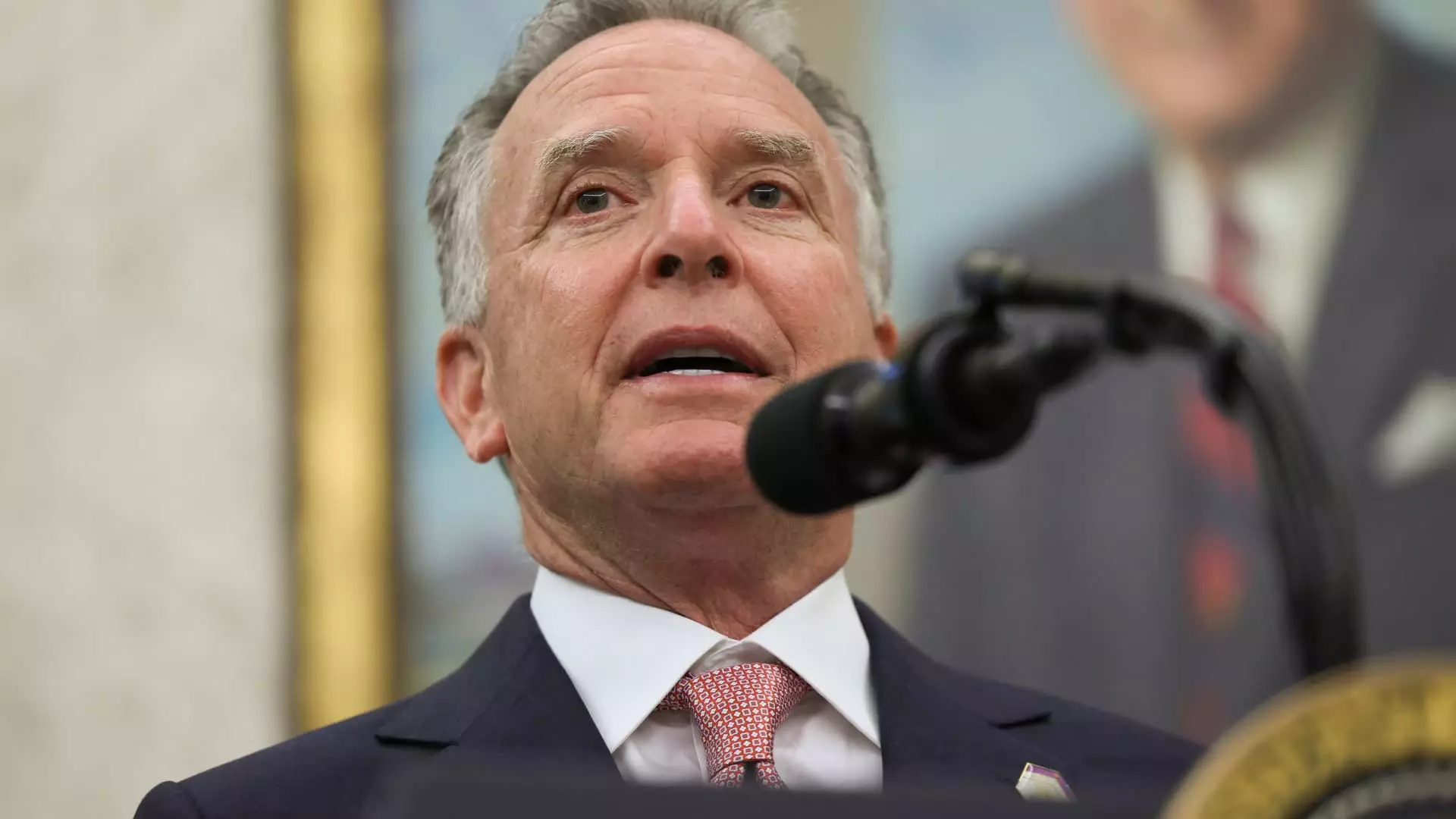In an era marred by geopolitical deception, claims of Vladimir Putin agreeing to provide Ukraine with “Article 5-like” security guarantees stand as a troubling development rather than a beacon of hope. The assertions from U.S. special envoy Steve Witkoff are intriguing, but keen observers should remain skeptical of their significance. Historically, Russia’s stance on Ukraine’s NATO aspirations and expansion has been clear: they see NATO’s encroachment as a direct threat to their national security. To suggest that Moscow might now concede to a security framework resembling NATO’s collective defense principles, especially in secret negotiations, is a gamble that could undermine long-term stability and foster false optimism.
This narrative serves to distract from the troubling reality that any security guarantees without tangible enforcement and verification are fragile at best. It’s one thing for diplomatic figures to hint at concessions; it’s quite another to trust that a Vladimir Putin who has repeatedly destabilized Ukraine and annexed Crimea will suddenly adopt a more responsible stance. Perhaps the most alarming implication is that such guarantees could encourage Ukraine to delay meaningful reforms, hoping for a security shield that may never fully materialize. The promise of “protection,” presented as a diplomatic breakthrough, risks becoming a preparatory step for future negotiations that may prioritize Russian interests over Ukrainian sovereignty, especially if commitments are not transparent and enforceable.
European and Ukrainian Perspectives: Hope or Illusion?
European leaders, like Ursula von der Leyen, have expressed cautious optimism, framing these negotiations as a demonstration of solidarity. Yet, from a pragmatic liberal perspective, their optimism borders on naivety. The European Union’s readiness to “do its share” seems more aspirational than actionable unless backed by concrete policies and substantial military and economic support. Rhetoric about security guarantees should not overshadow the reality that Ukraine’s sovereignty remains under threat, not because of a lack of international support, but because of unresolved conflicts, deep-rooted mistrust, and Russia’s strategic objectives.
Ukrainian President Volodymyr Zelenskyy’s enthusiastic remarks about “historic” US involvement need to be scrutinized further. It’s easy to celebrate the provision of guarantees, but what guarantees will actually protect Ukraine? Will they be embedded in international treaties with real enforcement mechanisms, or are they mere diplomatic assertions that could be revoked at Russia’s discretion? Zelenskyy rightly insists on the inviolability of Ukraine’s borders and refuses to recognize any territorial concessions. His stance reflects a determination to uphold Ukrainian sovereignty, but it also highlights the underlying dilemmas: peace negotiations often come with painful compromises that threaten to erode the very principles Ukraine fights to defend.
The Shadow of Trump and Shifting Diplomatic Currents
Amidst these discussions, the involvement of former President Donald Trump complicates the landscape, adding a layer of unpredictability. Trump’s recent meetings with Putin, described by allies as “productive,” are laden with ambiguity. The lack of detailed disclosures fuels concerns that negotiations are vulnerable to personal diplomacy detached from the careful scrutiny needed for peace. His advocacy for a “Peace Agreement” based on Ukraine ceding territories is profoundly problematic. It risks perpetuating a dangerous precedent: that territorial integrity can be compromised in favor of halting hostilities.
Such a stance is incompatible with liberal ideals of sovereignty and territorial integrity. If a peace deal requires Ukraine to surrender parts of its homeland—especially regions with strategic and symbolic importance—it sets a dangerous precedent that might embolden future aggressors. This approach reflects a shortsighted desire to quickly end the conflict at the expense of democratic principles and the rule of law. Conversely, the diplomatic aim must be to uphold international norms that prevent territorial conquests—an attempt that demands firm resistance against any pressure to recognize illegally annexed territories.
The Flawed Promise of Peace Through Concessions
The idea that Russia might agree to security guarantees while simultaneously expecting Ukraine to demilitarize and accept recognition of Crimea presents an insidious dichotomy. It suggests a peace settlement that privileges Russian interests over Ukrainian sovereignty, ignoring the core principles of self-determination and territorial integrity. Such a deal risks setting a dangerous precedent: that aggressors can dictate terms, and that international guarantees are negotiable commodities rather than sacred commitments.
Moreover, discussions around future borders and rebuilding Ukraine mirror a troubling tendency to normalize conflict as an inevitable feature of international diplomacy. It hints at a future where military might and territorial conquest can be negotiated away, undermining the very fabric of international law. The global community, especially in the liberal center, must resist the allure of quick fixes that sacrifice principles for promises of peace. True security must rest on robust, enforceable agreements rooted in the sovereignty of nations—not fleeting diplomatic assurances that can be revoked overnight.
The Uncertain Path Forward: Between Pragmatism and Principles
While diplomacy is essential, it must be grounded in strong commitments to uphold international law. The flirtation with security guarantees resembling NATO’s Article 5 must be approached with skepticism and a demand for clarity. Without transparent enforcement mechanisms, such promises might become nothing more than words that pave the way for future conflicts. The crucial task for liberals advocating a pragmatic yet principled approach is to ensure that any peace negotiations uphold Ukraine’s independence and refrain from conceding strategic territories in exchange for ceasefires.
The international community must push for a balanced strategy: one that combines immediate diplomatic engagement with unwavering support for Ukraine’s sovereignty and security. Any peace process that doesn’t clearly delineate on-the-ground realities and embed enforceable guarantees risks betraying the very ideals of stability and sovereignty it seeks to protect. As global politics becomes increasingly complex, the hope for a genuine, lasting peace requires more than lofty promises—it demands unwavering commitment, strategic patience, and respect for the fundamental rights of Ukrainians.


Leave a Reply